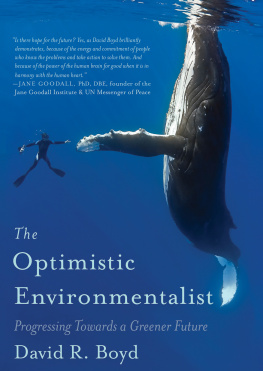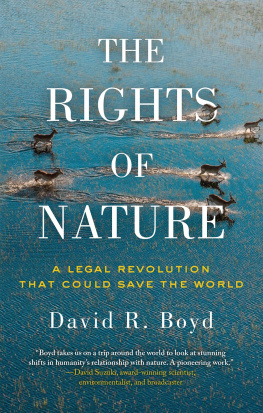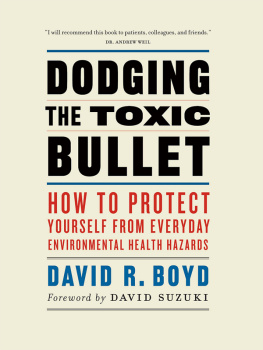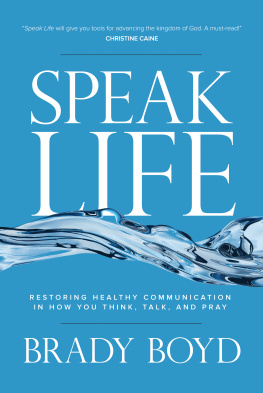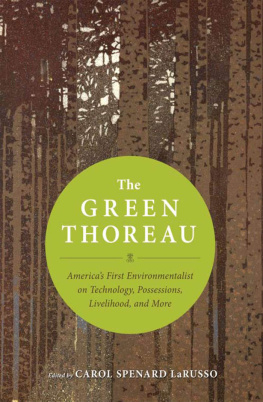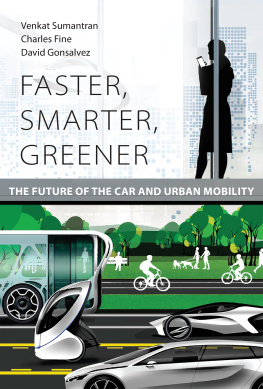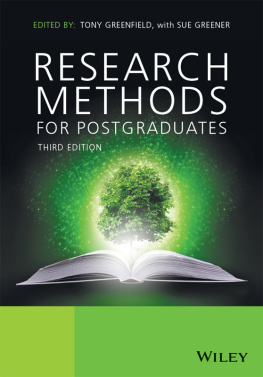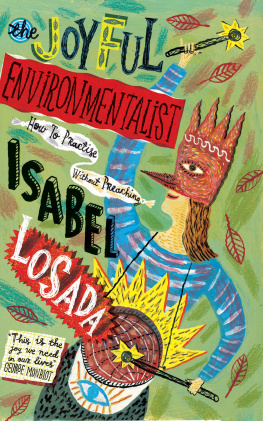Introduction
The Importance of Being Optimistic
IM AN OPTIMISTIC ENVIRONMENTALIST. Unlike open secret, jumbo shrimp, or working vacation, thats not an oxymoron. But I want to be crystal clear: our society faces serious environmental challenges, including climate change, toxic pollution, and the declining diversity and abundance of plant and wildlife species. The scientific evidence is irrefutable. But, based on humanitys track record over the past years, the ready availability of effective solutions, and the potential of future innovations, I also believe that todays environmental challenges can be overcome. From air pollution to safe drinking water, from greener cities to renewable energy, weve made remarkable but widely underacknowledged progress. If you feel overwhelmed or exhausted by the onslaught of bad news about the planet and are looking for some genuinely good environmental news, then youve come to the right place.
Im not the bury your head in the sand and pretend everything is hunky-dory type like Danish statistician Bjorn Lomborg or American writer Matt Ridley. Lomborg is a st-century snake oil salesman who has made a lucrative career out of downplaying the worlds environmental challenges. His 2001 book, The Skeptical Environmentalist , manipulated data to suggest that scientists and activists had systematically concocted or inflated every environmental problem in the world. Ridley followed suit in 2010 with The Rational Optimist , arguing that the dangers of acid rain, falling sperm counts, the ozone hole, and desertification are nothing but eco-exaggeration. But why would almost all of the worlds millions of scientists engage in such a complex and convoluted conspiracy? The answer is beyond my imagination. Despite their absurd arguments, Lomborgs and Ridleys books have been best-sellers. Apparently theres a large appetite for good news, even when the underlying premises are false.
ID BEEN THINKING ABOUT WRITING a book like this one for years, but my daughter, Meredith, provided the spark that propelled me to action. At the wise old age of seven, Meredith came home from school one afternoon and told me about her day. Shed learned about something called global warming and described it to me like this: Pollution is melting the ice in the Arctic Ocean. Habitats are disappearing, and the animals dont have anywhere to live. Polar bears are dying. Tears welled up in her big blue eyes. Shes had a soft spot for polar bears since getting a big stuffed one as a gift from her Grandma Grace. Species are going extinct, Meredith said, beginning to cry.
As kids do, she watched my reaction closely, looking for subtle signals in my body language or facial expression. Id been dreading this moment. Having worked as an environmental lawyer for more than years, I was painfully aware of the worlds converging eco-crises. Theres climate changerising sea levels, super-storms, droughts, and ocean acidificationcaused by our reckless burning of fossil fuels, clearing of tropical rainforests, and industrial farming methods. Theres the planets sixth mass extinction, the most devastating since Tyrannosaurus rex and other dinosaurs disappeared million years ago. The bodies of everyone living in the industrialized world carry a toxic burden of plastic, pesticides, and hundreds of other industrial chemicals. Theres even a new word, Anthropocene, signifying the end of the Holocene epoch and the beginning of a new geological era in which a single species, Homo sapiens , has planet-wide ecological impacts. The sheer volume of bad news about the environment can be overwhelming.
I was torn between conflicting instincts. On the one hand, I value honesty and steadfastly avoid lying to Meredith. On the other hand, I want to shelter my daughter from the worst of the worlds news until she has the emotional maturity and intellectual ability to cope with these issues. So very carefully I said, Its true that humans are causing environmental problems. But were also pretty good at solving those problems, and millions of people all over the world are doing their very best to help prevent pollution and extinction. Searching for an example that she could understand, I told Meredith the story of sea otters, a charismatic creature thats recovering nicely from a human-induced brush with oblivion.
First I had to clarify the difference between sea otters and river otters, because we only see the latter where we live on Pender Island, between Vancouver and Victoria on Canadas west coast. River otters forage for food in the ocean but make their homes on land, unlike their marine cousins. Theyre smaller than sea otters and I dont think theyre as cute, though that opinion comes from someone who has involuntarily shared his house with these malodorous creatures. Once when Meredith was a toddler, we were out on the deck at night looking at constellations. A pair of otters began mating loudly and enthusiastically below us, leading Meredith to say, Papa, the stars are singing. River otters loved spending parts of winter in the warm, dry crawl space beneath our house, covering it with a ghastly combination of shell-filled excrement and a diabolically putrid mucous-like excretion used to mark their territory. They were unbelievably bad housemates. For years, the otters outsmarted our attempts to evict them. Several years ago, we had to build a concrete perimeter foundation as part of a major home repair project, and that has finally kept them out.
Sea otters, happily for human residents of the west coast, spend their entire lives in the ocean, diving to the sea floor to find marine invertebrates like crabs, clams, and sea urchins. They float on their backs, eating and resting in rafts that usually number animals, though super-rafts as large as , have been reported. Only rarely do they venture onto land, and theyll never invade your home. Sea otters were long targeted for their luxurious fur, hunted at sustainable levels by Indigenous people prior to the arrival of Europeans, and then in a ferocious fur-trading frenzy that didnt stop until there were no sea otters left on the Canadian coast. Despite an international protection treaty negotiated in 1911 , the last Canadian sea otter was killed near Kyuquot, on Vancouver Island, in 1929 . The global population was slashed from between ,, sea otters to ,, individuals. In 1978 , shortly after the Committee on the Status of Endangered Wildlife in Canada was created, sea otters were among the first species in Canada to be officially designated as endangered.


